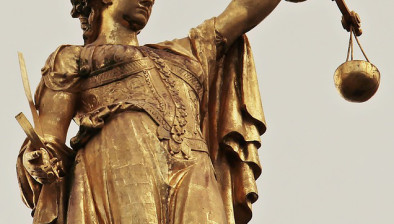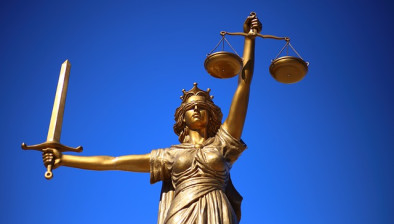Court of Appeal: Award of €310,000 for defamatory articles published in the Sunday World is upheld
The Sunday World has lost an appeal against the finding that two articles it published about a former GAA footballer were seriously defamatory and warranted an award of €310,000 in damages.

About this case:
- Citation:[2019] IECA 141
- Judgment:
- Court:Court of Appeal
- Judge:Mr Justice Michael Peart
Dismissing the Sunday World’s appeal, Mr Justice Michael Peart allowed the man’s cross-appeal and made a declaration that his constitutional right to privacy had been breached.
High Court
In the High Court, Mr Brian Nolan sought an award of damages for defamation against Sunday Newspapers Limited (trading as Sunday World) because he considered that his good name and reputation had been seriously traduced in two separate editions of the Sunday World in July 2012 and March 2013. The articles included photographs of Mr Nolan at swingers parties.
In June 2017, Mr Justice Tony O’Connor found in favour of Mr Nolan. Mr Justice O’Connor said the defamation was very serious and the impact on Mr Nolan was immense. He said that the damages had to send out a message of caution to the person who defames, and also to the wider public for the benefit of the defamed.
As a result of the public scrutiny faced by the former footballer, Mr Justice O’Connor said it was necessary for aggravated and punitive damages.
Mr Nolan was awarded a total of €310,000 in damages, comprising €250,000 for general damages, €30,000 for aggravated damages, and €30,000 for punitive damages.
Mr Nolan also claimed damages in respect of breaches of his constitutional right to privacy, however, Mr Justice O’Connor concluded that the right to privacy was not engaged. Mr Justice O’Connor said that Mr Nolan had consented to the photographs being taken by a stranger who attended the party, and that the photographs were freely available among up to 26 people of which Mr Nolan knew four at most.
Court of Appeal
The Sunday World appealed against the award of damages and also against Mr Justice O’Connor’s finding that Mr Nolan was defamed by the articles and that his reputation had been damaged.
Mr Justice Peart found no basis for interfering with Mr Justice O’Connor’s conclusion that it was the erroneous reporting of Mr Nolan as the organiser of the parties that caused injury to his reputation and good name. He said there was credible evidence to support this conclusion.
Finding that Mr Justice O’Connor had not erred in finding that the articles did not cover a matter of public interest, Mr Justice Peart said Mr Nolan’s prowess as a footballer at county level in 1998 was not sufficient to characterise him as a public figure.
Considering the level of damages, Mr Justice Peart said that Mr Justice O’Connor’s reasons for his assessment of damages were clear. He said that this was not a case where the award was so disproportionate to warrant intervention – Mr Nolan was seriously defamed on two separate occasions, he had not been offered an apology, and no offer of amends was made.
Stating that Mr Nolan’s “reputation and the regard in which he was held within his community was seriously traduced and damaged”, Mr Justice Peart found that the facts of the case justified the awards made.
Cross-appeal
Mr Nolan cross-appealed, submitting that Mr Justice O’Connor fell into error in a number of ways in finding that Mr Nolan’s right to privacy had not been engaged. Mr Justice Peart said it was clear from the evidence that it was implicit that the photographs would remain private and would not be published without his consent – “they were private photographs taken for private purposes which were never intended to be made public”, and the Sunday World were aware that publication was an invasion of Mr Nolan’s privacy.
Mr Justice Peart said that every person has a carapace of privacy “recognised and protected by law, which protects a private space within which a person’s life may be lived without unwanted intrusion by others, including the media, and without fear that elements of that life that are within that private space will without their consent be exposed to public view for some commercial purpose such as the curiosity and gratification of a voyeuristic readership or other audience”. He said that what happened to Mr Nolan was a gross intrusion by the Sunday World into that private protected space within his life.
The Sunday World was made aware of the serious harm which would be caused to Mr Nolan, the publication was a grave breach of Mr Nolan’s right to privacy, and the fact that they were provided by Mr Nolan’s former partner and not taken by a Sunday World employee did not absolve the newspaper of it’s obligations not to unlawfully breach this constitutional right to privacy.
Stating that the breach of Mr Nolan’s privacy was “deliberate, conscious and premeditated” and could not be excused, Mr Justice Peart allowed Mr Nolan’s cross-appeal and made a declaration that his constitutional right to privacy was breached by the Sunday World.
Mr Justice Peart was satisfied that the overall award of €310,000 was justified, but recalibrated the award of damages as follows:
- €200,000 for general damages for defamation;
- €30,000 for punitive damages;
- €30,000 for exemplary damages;
- €50,000 for breach of Mr Nolan’s constitutional right to privacy.
- by Seosamh Gráinséir for Irish Legal News










